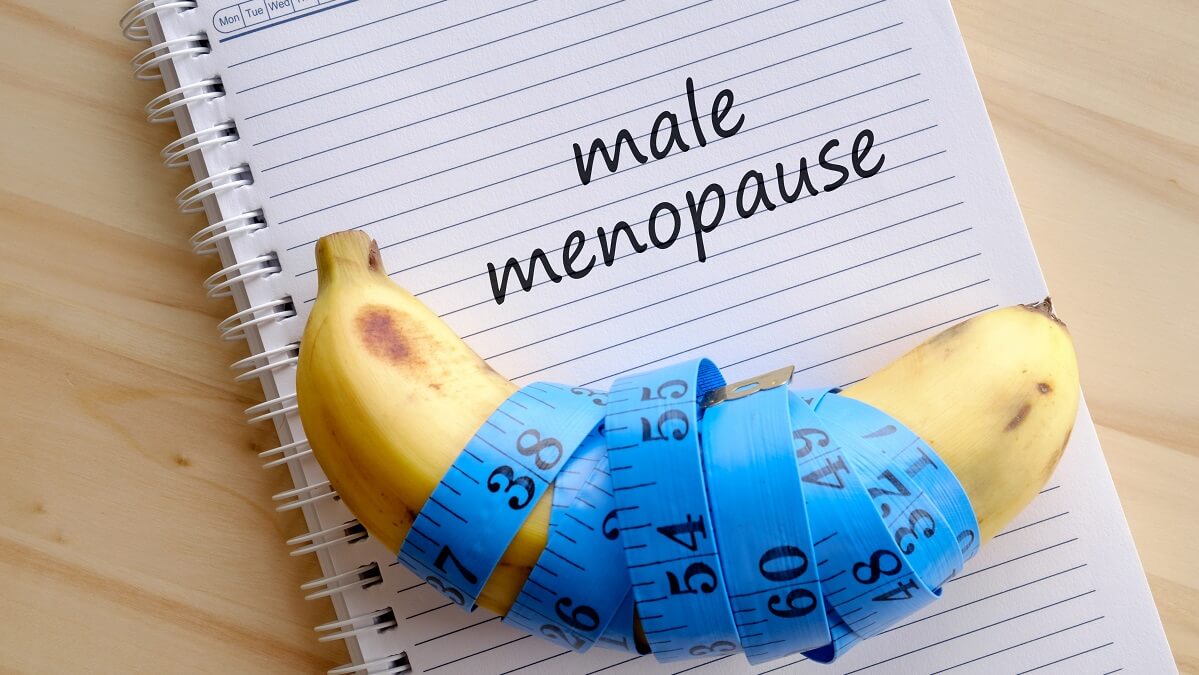Andropause is the male version of menopause. It’s a time when a man’s testosterone levels start to decline, usually around the age of 40 or 50.
The symptoms of male menopause are wide-ranging and can include everything from moodiness and irritability to erectile dysfunction and a decrease in libido. It can also lead to a decrease in muscle mass and bone density, and an increase in body fat.
If you are a man experiencing any of the symptoms of male menopause, it is important to talk to your doctor about your options. Treatment for andropause often includes testosterone replacement therapy.
Is male menopause real?
Dr Jeff Foster, a men’s health specialist and a co-founder of the H3Health company targeting the wellbeing of 40-plus males, says: “The question I get asked the most is, ‘Is the male menopause real?’ And my answer is a definite ‘yes’.”
Read: Everything you need to know about male breast cancer
Where andropause differs from menopause, he explains, is that it is a more gradual, variable and less eventful process that creeps up slowly on males and can occur at different life stages. Testosterone – the male oestrogen – gradually increases in men to around the age of 30, then gradually decreases 1 or 2 per cent in each subsequent year – that is, declining by roughly 10 per cent over a decade.
The effects of a gradual decrease in testosterone levels may seem insignificant, but it can have an unexpected and major impact on men as they age.
“Some men might have really high testosterone at 30 and they may not notice a loss of testosterone until they’re 70. A guy’s peak might only have ever been at the bottom end of normal and then he might suddenly get symptoms, such as extreme fatigue, as early as his 30s,” says Dr Foster.
Testosterone is central to the male’s daily function. “As a guy,” Dr Foster says, “testosterone makes you what you are. Yes, you can reduce or mitigate its loss by eating well, training hard, and making sure you don’t have other risk factors in life (smoking, excessive alcohol intake). But if you understand how the male process works, then you also see how it matches with the female process. In just the same way that a lack of oestrogen affects women, when you take testosterone out of guys’ bodies, they feel dreadful.
“Testosterone deficiency in men mimics menopause in women very closely.”
Read: ‘Embarrassing’ male body issues
However, he says, ‘manopause’ is rarely considered worthy of investigation by GPs. “Most doctors don’t consider testosterone deficiency in their differential diagnosis for men with low energy,” Dr Foster claims. “Worse still is the fact that many of us [doctors] don’t even know that we should.”
Recently, Dr Foster’s consultancy saw a patient in his late 60s, who had been diagnosed with early stage dementia. “When the testosterone was replaced his brain fog lifted and the patient’s memory went back to normal,” says Dr Foster.
Does this mean testosterone replacement therapy should be as widely available as HRT?
There’s no simple answer, as testosterone levels fluctuate naturally over a short period of time, just as ‘normal levels’ of oestrogen fluctuate and change.
“They vary substantially over the course of a day,” explains Dr Richard Quinton, a consultant endocrinologist. The highest levels occur on waking, with the afternoon and early evening yielding lower levels.
“And a big meal suppresses testosterone levels by 20 to 30 per cent. Low testosterone is associated with all sorts of chronic illnesses, from diabetes to dementia – but whether it is a cause or a symptom remains controversial,” says Dr Quinton.
Read: Ten best Australian men’s health websites
“Every single form of acute and chronic physical and mental illness is also associated with lower testosterone levels as a normal physiological effect,” says Dr Quinton. “This is not hypogonadism – decreased functional activity of the gonads, when the body is not producing enough of the testosterone hormone – but non-gonadal illness syndrome (NGIS).”
Symptoms of this include obesity and a metabolic slow down.
“Genuine andropause is actually very rare, affecting fewer than 1.5 per cent of older men. Unfortunately, geriatricians and rheumatologists rarely test for it, let alone treat it,” says Dr Quinton.
What do you think about male menopause? Why not share your thoughts in the comments section below?
Disclaimer: This article contains general information about health issues and is not advice. For health advice, consult your medical practitioner.

